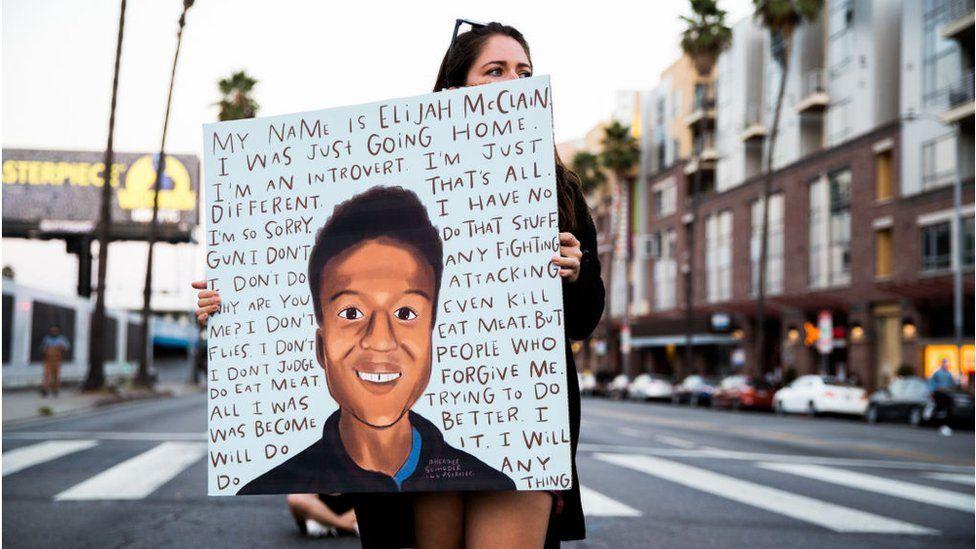
The Tragic Case of of Elijah McClain: Unveiling the Layers of Injustice and Systemic Flaws
The Elijah McClain case is more than a tragedy; it’s a magnifying glass on the systemic issues in American policing. This article peels back the layers, from the haunting last words to the courtroom drama.
By Darius Spearman (africanelements)
About the author: Darius Spearman is a professor of Black Studies at San Diego City College, where he has been teaching since 2007. He is also the author of various books, including Between The Color Lines: A History of African Americans on the California Frontier Through 1890.
Introduction
Elijah McClain’s name reverberates across America, a haunting reminder of the systemic issues that continue to plague our law enforcement. His story is not just a tragedy; it’s a case study in what’s broken and what needs fixing.

You can view this diagram in a new tab.
The Fateful Night
August 24, 2019, started as an ordinary evening for Elijah McClain. He was walking home, groceries in hand, wearing a ski mask to keep warm. But a call to the Aurora police about a “suspicious person” turned his world upside down. Officers confronted him, and a chilling sequence unfolded. McClain uttered the words “I can’t breathe” seven times, a plea that fell on deaf ears.
“Elijah McClain’s mother left a Colorado courtroom in tears as prosecutors showed jurors disturbing video footage of the 2019 confrontation with police in a Denver suburb that led to McClain’s death.” (MSN)
The Trial Begins
Fast forward to September 20, 2023. The officers involved are finally facing their day in court. The charges are severe: manslaughter and criminally negligent homicide, among others. The courtroom is a cauldron of tension, as both sides prepare to make their case.
“Two of the Colorado police officers accused in the 2019 death of Elijah McClain began standing trial this week on criminal charges that were filed more than two years after the 23-year-old Black man died days following a physical confrontation.” (MSN)
Legal Arguments
The courtroom is a stage, and the actors are ready. The prosecution’s opening statements are a blistering indictment of the officers involved. They argue that McClain’s death was not just unfortunate but criminal. The defense counters, claiming the officers acted within the scope of their duties. The battle lines are drawn.
“McClain suffered cardiac arrest and was declared brain dead before being taken off life support on Aug. 30, 2019, six days after the violent encounter with Aurora police and medics.” (MSN)
Systemic Issues
The trial serves as a microcosm of broader systemic issues in American policing. From racial profiling to the misuse of force, the case opens a Pandora’s box of questions. It’s not just about McClain; it’s about every Black individual who has ever felt the weight of a system designed against them.
Public Reaction
The public’s gaze is fixed on the trial. Social media is a firestorm of hashtags, memes, and calls for justice. The reactions range from hope to anger, anticipation to despair. It’s clear that the case has struck a nerve, not just in Aurora but across the nation.
Conclusion
As the gavel falls in the courtroom, we’re left to ponder the implications of Elijah McClain’s story. It’s a grim reminder of the work still needed to reform a system rife with flaws. The fight for justice is far from over, and McClain’s name will forever be a rallying cry in that battle.
